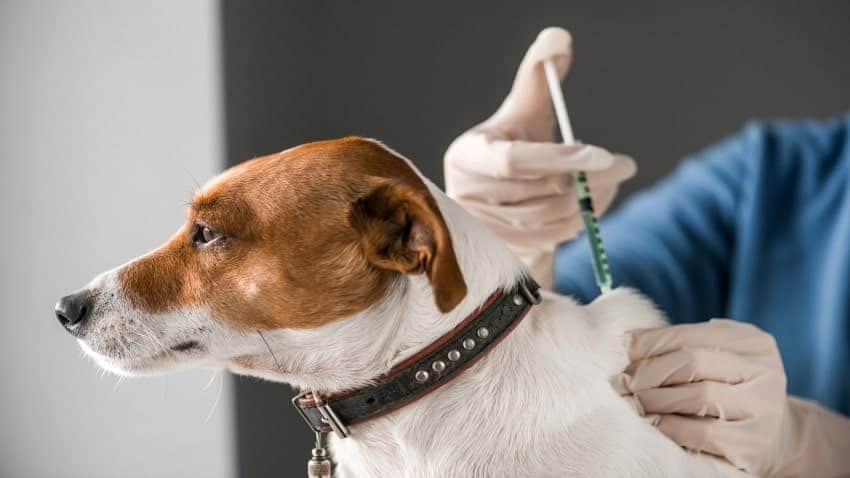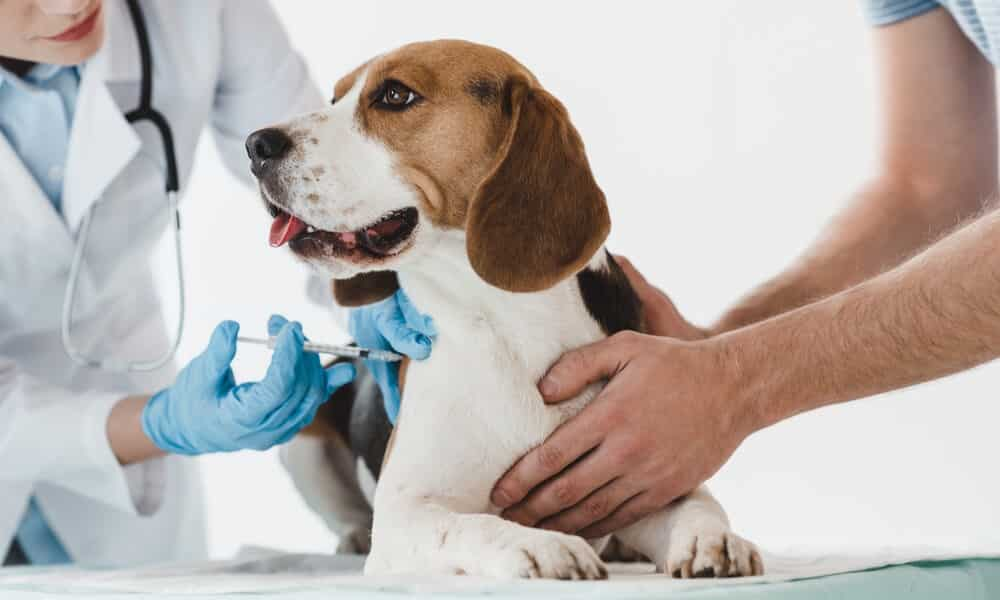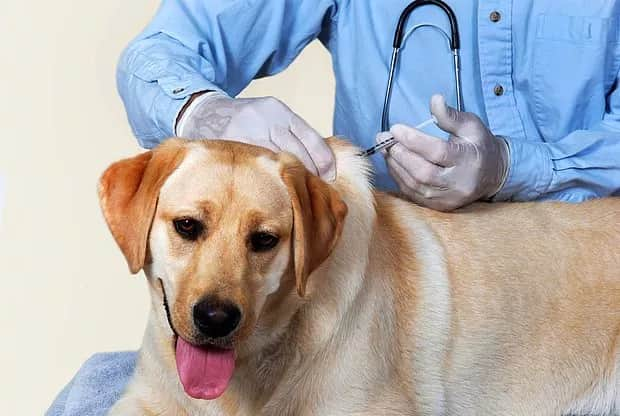Bordetella Vaccine: Risks, Benefits, Use
Vaccination in dogs is the biggest step towards a healthy life.
Like cats, dogs are also protected from a number of diseases through vaccines.
If your dog encounters an infection, your dog’s immune system creates a response and fights the infection.
But in this process, he can succumb to the disease.
If dogs are vaccinated against a particular disease, the body will mildly contract this disease and the body will become resistant to the disease.
In this way, your dog will be immune to the disease without any signs of illness.
Vaccination causes the formation of antibodies that can directly neutralize the infection and the activation of other cells that can eradicate the infection.
In subsequent infections, the immune system remembers the disease and protects the body against the disease.

What Will We Learn?
What Is The Bordetella Vaccine?
The Bordetella vaccine is a type of vaccine administered to dogs to prevent kennel cough.
This vaccine prevents the Bordetella Bronchiseptica virus from infecting the dog.
Dogs that are in frequent contact with other dogs should be given this vaccine once a year.
Bordetella Bronchiseptica is a virus that causes upper respiratory infections in your pet.
This type of inflammation causes sickness and coughing in your dog and can expose your dog to secondary infections.
This type of inflammation causes sickness and coughing in your dog and can increase your dog’s risk of contracting secondary infections.
Usually, veterinarians will not tell you that your dog has the Bordetella Bronchiseptica virus.
Veterinarians would instead say that your dog has kennel cough.
This can cause pet owners to be confused about what the Bordetella vaccine does.

What Is Kennel Cough?
Infectious bronchitis is more commonly known as a shelter cough. Both viral and bacterial agents can cause shelter cough disease.
Canine Adenovirus 2 (CAV), Parainfluenza Virus (PIV), Canine Respiratory Coronavirus (CRCV) are the main viral agents. However, the biggest factor is the bacterium Bordetella Bronchiseptica.
Shelter cough is named because it spreads in environments where more than one dog is present, such as a shelter, dog hotel, training park.
The risk of transmission to other animals through coughing is very high.
Since the disease affects the lower respiratory tract, especially the bronchi, it is also called infectious bronchitis.
Depending on the age and general health of your puppy or adult dog, it can be mild or more severe.
The most common symptom of Kennel Cough is a cough, but your dog may also experience the following symptoms:
- Dry, hacking cough (dogs)
- Retching
- Runny nose
- Sneeze
- Runny eyes
In kennel cough, many agents can be involved in the specific disease.
The vaccine does not protect against all agents, but against those considered to be the most important.
If your puppy has been vaccinated, he can still get the disease when he comes into contact with these different agents for which the vaccine is not effective.
Symptoms of kennel cough can be easily detected. If you think your dog is showing any of these signs, consult your veterinarian immediately.
Your vet will run a series of tests to determine if your puppy has come into contact with the disease and will prescribe the necessary treatment.
If you don’t want your dog to contract kennel cough while in the vicinity of other dogs, be sure to have them vaccinated on time.
When Should Dogs Be Given Bordetella Vaccine?
The best way to determine if your dog needs the Bordetella vaccine is to talk to your veterinarian.
If your dog goes out frequently and comes into contact with other dogs, you may want to consider getting your dog Bordetella vaccine.
If you have a puppy, the veterinarian will determine when to vaccinate.

Are There Risks To The Bordetella Vaccine?
Whether animal or human, vaccination is always a safe medical procedure.
In some cases, animals may be hypersensitive (as is the case with humans) to the ingredients in vaccines.
In some cases, veterinarians may not recommend Bordetella vaccination to immunocompromised, pregnant or sick animals.
Especially if you have had your dog vaccinated before and if your dog has been badly affected by this vaccine, be sure to inform the veterinarian about this.
It should be noted that Bordetella is not the only cause of kennel cough in dogs.
Many other types of viruses, such as the parainfluenza virus, can also cause kennel cough.
This creates a risk that even if you vaccinate your dog, he can still get kennel cough thanks to other viruses.
That’s why it’s so important for dog owners to know the symptoms of kennel cough.
Some Issues To Be Considered In Vaccination
- Pets to be vaccinated must be controlled for internal and external parasites.
- It should be noted that the body temperature is in the range of (38.5-39.5C°) for puppies.
- Pets to be vaccinated should be kept away from factors that will cause stress (temperature period, travel, etc.). The adaptation period of at least 10 days should be taken into account in order for newly adopted pets to get used to the home and environment. Vaccination should never be done before the adaptation period ends.
- Care should be taken that the pets to be vaccinated have not been given antibiotics recently. If any medication has been used, this information must be shared with the veterinarian.
- It is recommended not to take a bath in the 2 days before and 3 days after the vaccination, and not to make any changes in the environment and food type.
- Preferably the puppies to be vaccinated should be weaned.
- If there is no necessity for pregnant and lactating pets, vaccination and drug administration, including antiparasitic drugs, should not be done. In case of necessity, the application should be made by the veterinarian and the pet should be followed.
- Vaccines should not be administered to animals with poor general condition, diarrhea and sick, loss of appetite.
- If there is no necessity, puppies should be looked after and fed uniformly throughout the vaccination schedule. It should be kept away from the bathroom and environment changes as much as possible.
- Puppies should be kept away from adult pets and other puppies, especially during the vaccination schedule. It should be kept away from places where other animals roam and their remains, and other animals should not be allowed to use food and water containers.
- A suitable vaccination schedule should be established for puppies and this schedule should be followed with discipline. In adult pets, annual vaccinations should be repeated as 1 dose.
- The vaccines used must be administered by the physician or auxiliary personnel.
- Injectors used in vaccination should be disposable and sterile.
- The pet owner should be given a vaccination follow-up card containing the information about the vaccinated pets, the date and labels of the vaccines administered, and the approval of the veterinarian or institution administering the vaccine.
You can read this article to learn about DA2PP, another vaccine that you should get your dog 3 years apart.
